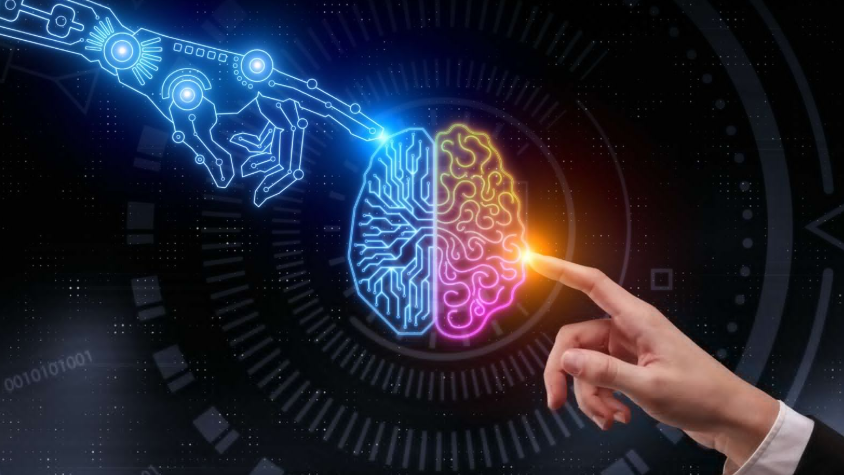Artificial Intelligence (AI) is no longer just a concept from science fiction. It has become an integral part of our daily lives, reshaping how we work and interact with technology. From virtual assistants that manage our schedules to algorithms that analyze vast amounts of data in seconds, AI’s influence is undeniable.
As industries evolve, so too does the nature of work itself. This transformation raises important questions about the labor force and the future landscape of employment. Join us as we delve into how Artificial Intelligence is revolutionizing various sectors and what it means for workers around the globe. The journey ahead promises both exciting opportunities and challenges that demand our attention.
The Impact of AI on the Labor Force
The rise of artificial intelligence is reshaping the labor force in profound ways. Many jobs are being automated, leading to shifts in traditional roles across various sectors.
Manufacturing has seen robots take over repetitive tasks, enhancing efficiency and reducing costs. This transition can spark anxiety among workers fearing job loss.
On the other hand, new opportunities are emerging for those skilled in AI technology. Data analysts and machine learning specialists are now highly sought after as businesses look to harness AI’s potential.
As companies integrate AI tools into their operations, reskilling becomes essential. Workers need training to adapt to this changing landscape and embrace new technologies effectively.
Industries Most Affected by AI
Artificial intelligence is reshaping various industries, leading to significant transformations. One of the most impacted sectors is manufacturing. Automation powered by AI enhances efficiency and precision on assembly lines.
In retail, personalized shopping experiences now rely heavily on AI algorithms. These systems analyze consumer behavior to recommend products in real-time.
Healthcare also benefits immensely from artificial intelligence. Diagnostic tools utilize machine learning for faster and more accurate results, improving patient outcomes.
Finance sees a revolution through AI-driven analytics and fraud detection systems that safeguard transactions while streamlining processes.
Transportation isn’t left behind either. Autonomous vehicles are set to redefine logistics, making deliveries quicker and more reliable.
Even agriculture feels the influence of AI with smart farming techniques that optimize crop yields while minimizing resource use. Each industry faces its own unique challenges and opportunities as artificial intelligence continues its rapid evolution.
Benefits of AI in the Workplace
Artificial Intelligence brings a wave of efficiency to workplaces. Routine tasks that once consumed hours can now be completed in minutes. Automation streamlines processes, freeing employees to focus on more strategic work.
AI enhances decision-making too. By analyzing vast amounts of data quickly, it provides insights that guide smarter choices. This capability leads to better outcomes and improved organizational performance.
Collaboration flourishes with AI tools designed for seamless communication across teams. These innovations foster creativity by connecting diverse perspectives and ideas.
Safety is another area where AI shines. Predictive analytics can identify potential hazards before they become issues, creating a safer work environment for everyone involved.
Challenges and Concerns Surrounding AI
Artificial intelligence brings promising advancements, but it also raises significant challenges.
One major concern is job displacement. As AI systems become more capable, many fear that automation will replace human roles. This can lead to economic instability and increased unemployment rates in certain sectors.
Ethical implications are another pressing issue. The decision-making processes of AI can be opaque, making it difficult to determine accountability when things go wrong. Bias in algorithms could perpetuate existing inequalities if not addressed properly.
Data privacy poses additional risks. With AI relying heavily on personal data for training models, individuals may feel vulnerable regarding their information security.
There’s the question of trust in technology. Many people worry about over-reliance on machines for critical tasks and the potential consequences of mistakes made by these systems. Balancing innovation with caution will be crucial as we navigate this evolving landscape.
Preparing for an AI-Driven Future
As we embrace an AI-driven future, adaptability becomes crucial. Organizations must foster a culture that welcomes change and innovation. Employees should be encouraged to enhance their skill sets.
Lifelong learning is essential in this evolving landscape. Online courses and workshops can empower workers to understand AI technologies better. This knowledge will keep them relevant in their roles.
Collaboration between human intelligence and artificial intelligence is vital. Teams should explore how AI can augment decision-making processes rather than replace them entirely. Emphasizing the unique strengths of human creativity, empathy, and critical thinking helps maintain balance.
Investing in AI literacy programs will prepare the workforce for upcoming challenges. Companies need to prioritize training initiatives that demystify artificial intelligence concepts for all employees.
Fostering open communication about fears surrounding automation ensures a smoother transition into this new era of work. Engaging discussions on ethics will guide responsible adoption practices as companies move forward with AI integration.
Conclusion
Artificial intelligence is reshaping the landscape of work in ways we are only beginning to understand. As it continues to evolve, businesses that embrace AI will likely gain significant advantages over competitors who resist change.
The transformation brought about by artificial intelligence is not just a fad; it’s a fundamental shift in how industries operate and grow. While some may face challenges adapting to this new environment, the potential for increased efficiency and innovation cannot be overlooked.
Organizations must look towards integrating AI thoughtfully and strategically. Embracing continuous learning will be essential as both workers and employers navigate this new terrain together.
As we move forward, staying informed about advancements in AI technology will empower individuals and companies alike. The future holds endless possibilities with artificial intelligence at its core, paving the way for unprecedented developments across various sectors.

